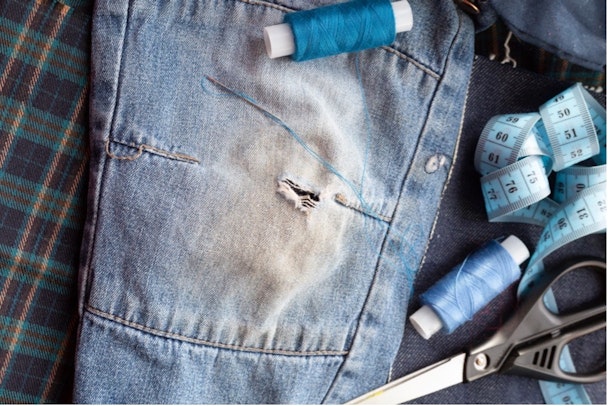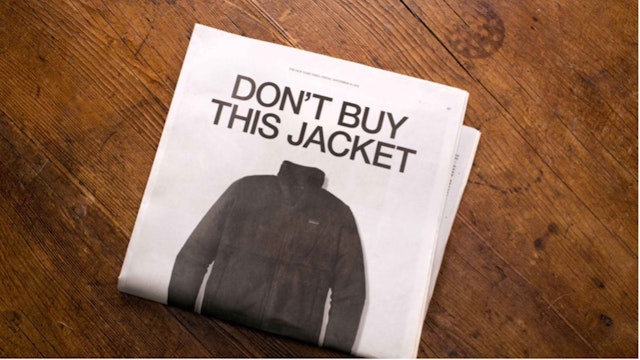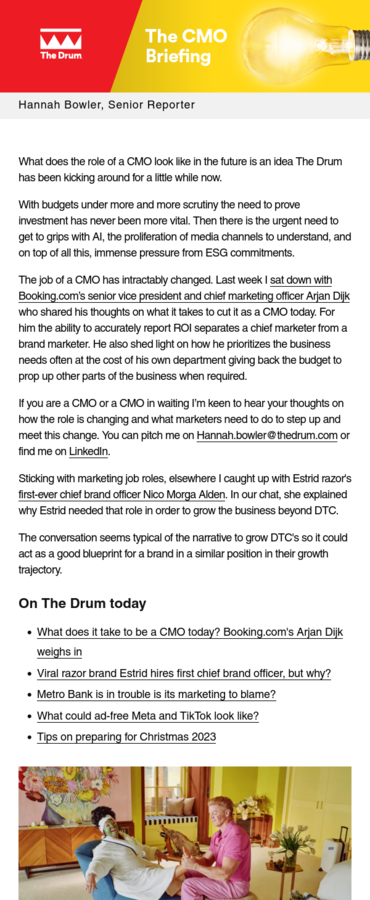Could anti-consumerist brand campaigns put an end to Black Friday?
From shop closures to donating profits to climate projects, brands have come up with innovative ways to protest Black Friday. But amid a cost of living crisis, will overconsumption messages still resonate?

Sustainability and branding experts wonder if we've reached peak Black Friday / Adobe Stock
Once a uniquely American phenomenon, Black Friday is now a global affair. In recent years, its popularity in the UK has skyrocketed. According to refuse company Waste Managed, UK shoppers spent £4.8bn last year – though this is expected to drop by 18% in 2023 due to the continued cost of living crisis.
This shopping frenzy comes at an unsurprising planetary cost. That same research found that last year’s Black Friday sales generated 429,000 metric tonnes of greenhouse gas emissions from product deliveries alone. (That’s equivalent to 435 return flights from London to New York.)
Meanwhile, 80% of products bought at Black Friday end up in landfill, are incinerated or recycled poorly.
In 2011 Patagonia cemented itself as a darling of the degrowth movement when it took out an ad in the New York Times telling consumers not to buy its products on Black Friday. “It’s time for us as a company to address the issue of consumerism and do it head on,” the brand said at the time.

In the decade-plus since, brands have taken a leaf out of Patagonia’s book by creating their own innovative anti-Black Friday campaigns. This year, Dutch sustainable denim brand Mud Jeans will be shutting down its online shop and selling vintage jeans as well as launching an official resale platform. It continues to draw on Patagonia’s original message. “Patagonia sparked a conversation around overconsumption, encouraging consumers to only buy what they really need,” its head of marketing Danique Gunning tells The Drum.
Gunning adds that this year, Mud is very aware that global events like the cost of living crisis might impact people’s decision to participate in Black Friday, taking advantage of slashed prices to afford items they might not have been able otherwise.
“By shutting down our online shop and directing customers to our vintage page instead we want to show that you can participate in Black Friday in a more conscious way. On this platform, we offer Mud Jeans in great quality at a significantly lower price point. Through our pre-loved denim platform, we want to show that you don’t need to buy anything new on this day. Instead, buying second-hand can enable you to save money and reduce the environmental impact of your purchasing decisions,” she says.
Advertisement
Sian Conway-Woods, founder of the UK’s largest sustainability community Ethical Hour and a senior managing partner at agency 181st Street, says that while mass consumption isn’t a comfortable fit for sustainable brands, “‘Green Friday’ can be a good opportunity to build loyalty with eco-minded customers.”
Advertisement
But brands should be wary of pushing a counter-narrative too far. “The brands I’m seeing achieve good results are tailoring their messages to the cost of living – promoting the cost-saving benefits of reusable products, or ‘no spend’ options like the sharing economy, showing how their products and promotions meet customers’ primary concerns,” she adds.
For several years, Freitag, a Swiss accessories brand that reuses old truck tarps to make its bags, ignored Black Friday, its PR lead, Lis Isenegger tells The Drum. “But after a while, we felt like that wasn’t enough.”
“Come 2019 we decided to shut down our online store for the first time. We wanted to take a stance against Black Friday, with an initiative that questions this day of retail frenzy in a bold but also thoughtful and fun way. For the past four years, we have closed our online store on this day and redirected all visitors to our bag exchange platform SWAP (Shopping Without Any Payment). For the first time last year, Freitag Stores from Zurich to Tokyo hosted SWAP events for those who already have a Freitag bag but are interested in a new one.”
Offering retail exchange events and even repair workshops is another way that brands are using Black Friday to draw attention to its encouragement of consumerism and, hopefully, subvert the trend.
Suggested newsletters for you
As Christopher Raeburn, founder and creative director of the London-based fashion brand Raeburn, tells The Drum: “This year our online store will be closed and we will be running a free repairs event at the Raeburn Lab in Hackney, east London. We will also be playing host to our friends at [eyewear brand] Cubitts which will be on-site offering free-of-charge spectacle refurbishment, echoing our own sentiment regarding keeping items in circulation for longer, to be enjoyed by our clients for the longest time.”
Raeburn says the brand doesn’t feel much pressure to speak out about Black Friday every year, instead seeing it as an opportunity to highlight alternative ways of consuming, such as buying second-hand.
Over the years, a number of other brands have gone hard on the anti-consumerism messaging around Black Friday. In 2020, sustainable shoe brand All Birds raised its prices by £1 and donated all proceeds to Greta Thunberg’s charity Fridays for Future.
This year, though, Allbirds is offering some promotions during this time, with the aim of making sustainable choices more accessible at key moments in the year. “It is an incredibly competitive environment, and with consumers facing financial challenges Allbirds hopes that if someone is thinking about buying a pair of shoes this Black Friday, that they might consider supporting a sustainable brand,” a spokesperson told The Drum.
Leo Rayman, the founder of sustainable strategy agency EdenLab, says that this is part of a growing trend of brands moving away from “short-lived, one-offs to deeper rethinking of business models tackling overconsumption and overproduction across sectors.”
Rayman points to sustainable brands using Black Friday to really highlight their proposition: “Dutch body cosmetics brand Rituals is offering special discounts in its refill products for ‘Green Friday’, while outdoor wear company Fjallraven is suggesting a ‘Long-term investment Friday’ instead.”
“Vestiaire Collective has gone one step further, removing 30 fast-fashion brands from its websites ahead of Black Friday to raise awareness about the negative environmental impacts of over-consumption.
“This is demand switching in action, taking existing buyer behavior and subverting it in order to reduce negative environmental impact,” he says.
But Rayman has hope that we might be seeing the decline of Black Friday sooner than we think. “EdenLab’s analysis shows that Black Friday searches have been declining year on year since a peak in 2019.”
“Black Friday has jumped the shark, though not everyone knows it yet.”


